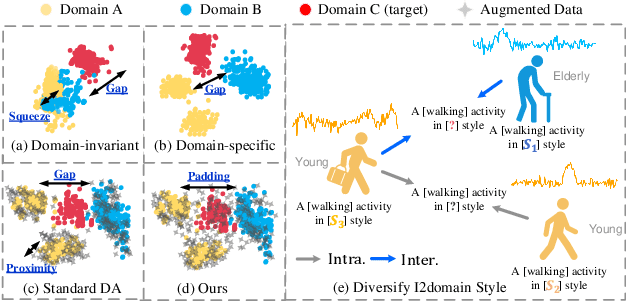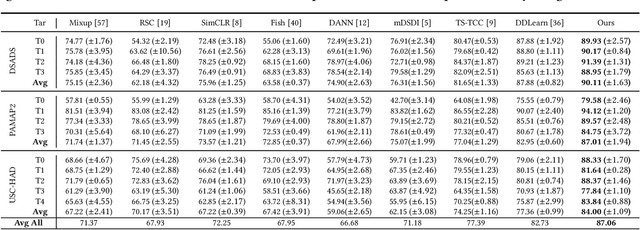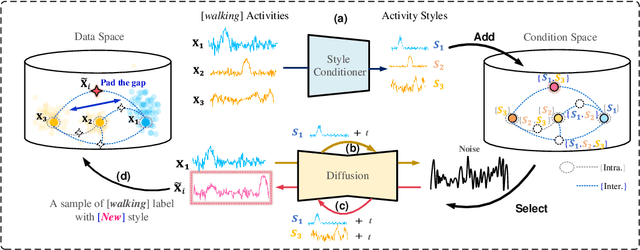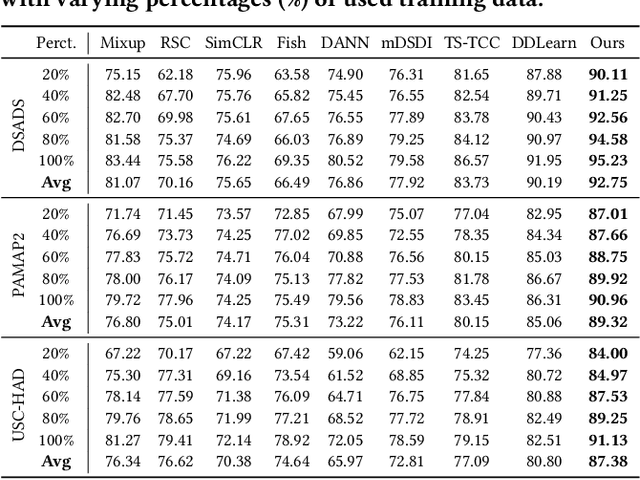Diverse Intra- and Inter-Domain Activity Style Fusion for Cross-Person Generalization in Activity Recognition
Paper and Code
Jun 07, 2024



Existing domain generalization (DG) methods for cross-person generalization tasks often face challenges in capturing intra- and inter-domain style diversity, resulting in domain gaps with the target domain. In this study, we explore a novel perspective to tackle this problem, a process conceptualized as domain padding. This proposal aims to enrich the domain diversity by synthesizing intra- and inter-domain style data while maintaining robustness to class labels. We instantiate this concept using a conditional diffusion model and introduce a style-fused sampling strategy to enhance data generation diversity. In contrast to traditional condition-guided sampling, our style-fused sampling strategy allows for the flexible use of one or more random styles to guide data synthesis. This feature presents a notable advancement: it allows for the maximum utilization of possible permutations and combinations among existing styles to generate a broad spectrum of new style instances. Empirical evaluations on a board of datasets demonstrate that our generated data achieves remarkable diversity within the domain space. Both intra- and inter-domain generated data have proven to be significant and valuable, contributing to varying degrees of performance enhancements. Notably, our approach outperforms state-of-the-art DG methods in all human activity recognition tasks.
 Add to Chrome
Add to Chrome Add to Firefox
Add to Firefox Add to Edge
Add to Edge